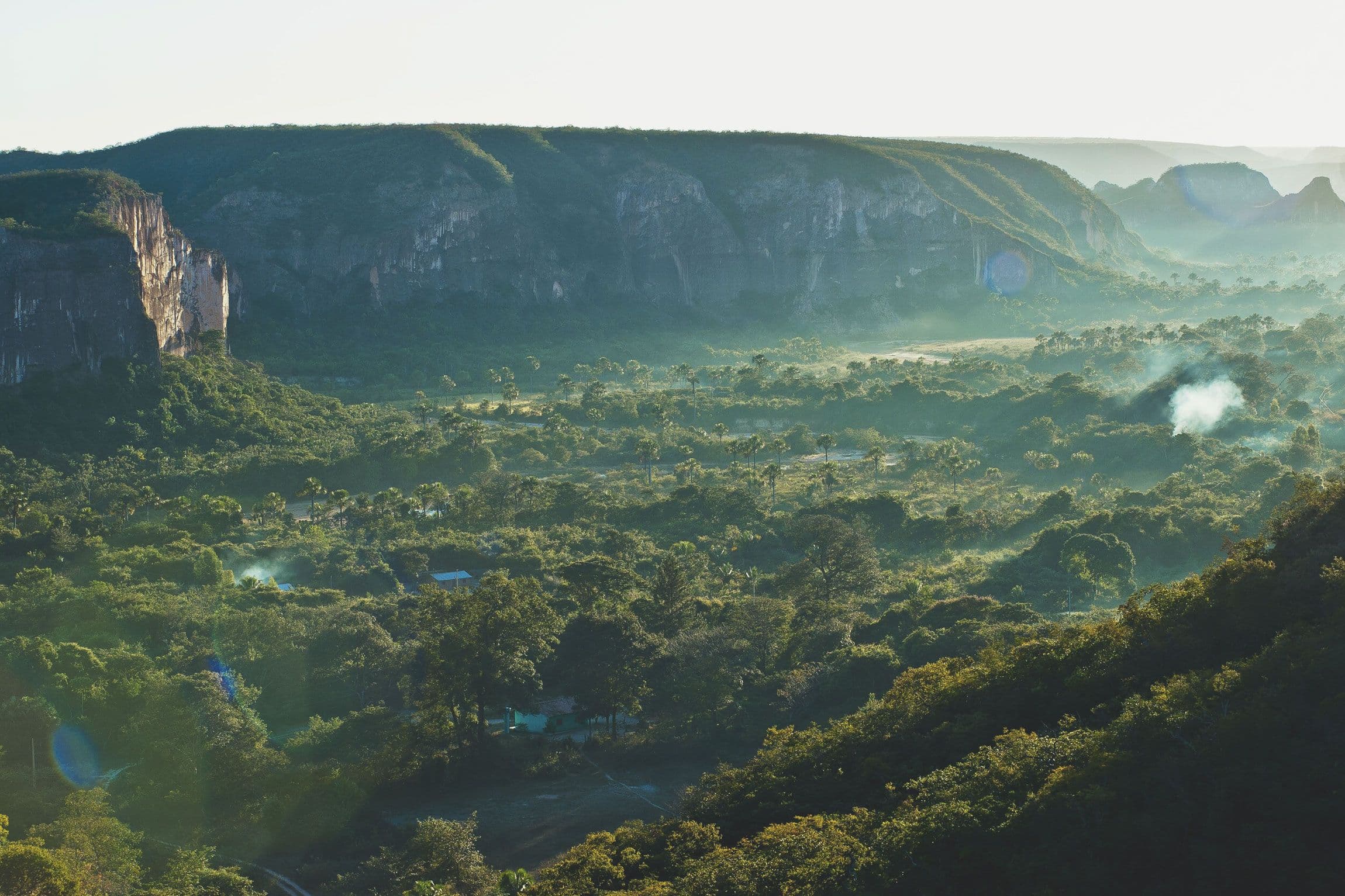
This is the very first time Brazilian soy suppliers make such a commitment. As a result of the move, the majority of the global farmed salmon industry, including the entire European salmon sector and all of Grieg Seafoods operations, will source soy from Brazilian suppliers whose soybean value chains are 100 percent deforestation and conversion free. The decision also marks the first time an animal protein industry has set such a voluntary and sector wide benchmark.
"Companies in the salmon industry work hard to reduce our impact in production and our supply chains, towards a more sustainable food system. Being the first sector to have deforestation free Brazilian suppliers is a huge step forward! The entire salmon industry celebrates this fantastic achievement and the leadership shown by CJ Selecta, Imcopa and Caramuru," says Tor Eirik Homme, Director of Feed and Nutrition in Grieg Seafood.
"The move proves that sometimes it’s the small companies that take the boldest action. We hope the rest of the Brazilian soy industry will follow their example," Homme says.
Impact beyond the salmon industry
CJ Selecta, Caramuru and Imcopa/Cervejaria Petrópolis have set August 2020 as the cut-off-date for their deforestation and conversion free soybean supply chain. Together with the sustainability standard owner ProTerra and WWF Brazil, the soy suppliers have agreed on a robust monitoring, reporting and verification (MRV) system to implement and enforce their commitment to zero deforestation.
The Brazilian suppliers have delivered certified and deforestation free soy to the European aquaculture industry for a number of years, while delivering non-guaranteed products to other markets. This new commitment extends their deforestation-free commitment to their entire soybean business, also outside the salmon value chain. This means that soybeans produced on land converted after August 2020 cannot enter the supply chain of any of these soy companies. The decision will have immediate effect for all new contracts of soy purchase.
Grieg Seafood applauds this bold and historic move by CJ Selecta, Caramuru and Imcopa, an important step towards ending soy related deforestation in Brazil!
Sets a new benchmark
The move is celebrated by NGOs as setting a new benchmark for animal protein supply chains.
Maurício Voivodic, WWF Brazil Executive Director, said:
“We see this voluntary sector-wide commitment as a benchmark to inspire other global animal protein sectors, as well as other markets linked to the soy supply chain. We celebrate together this relevant private sector led process for the protection of the unique Brazilian Cerrado.”
Ida Breckan Claudi, Senior Adviser to the Rainforest Foundation Norway, said:
“The Brazilian soy suppliers and the Norwegian salmon industry show true leadership and sets the new bar for sustainable supply chains. This historic commitment by their Brazilian soy suppliers will be a game changer for the sustainability standard for global supply chains. Global pork, poultry and beef producers are lagging behind, by still allowing deforestation in their supply chain. To stop being complicit in deforestation, the meat industry must follow suit and require their suppliers to become fully deforestation-free.”
We see this voluntary sector-wide commitment as a benchmark to inspire other global animal protein sectors, as well as other markets linked to the soy supply chain.
Reduces risk to the entire Brazilian soy industry
International retailers, processors and salmon farmers, including Tesco, Ahold Delhaize, Coop UK, Marks and Spencer, METRO, Waitrose, Aquascot, Hilton Food Group, Farne Salmon and Trout Ltd/Labeyrie Fine Foods, Grieg Seafood, Lerøy Seafood Group, Cermaq, Norway Royal Salmon, SinkabergHansen and Mowi, applaud the decision.
“As companies with Brazilian soy in our supply chains, we are deeply concerned about the ongoing deforestation rates in the country. We greatly applaud this historic decision by CJ Selecta, Imcopa and Caramuru, and are encouraged to see much needed action by these Brazilian soy suppliers. The move reduces risk to the entire Brazilian soy industry and we urge the rest of the Brazilian soy traders to follow their leadership.
As a result, Brazilian soy used to feed European farmed salmon is not only certified, it is also supplied by Brazilian vendors with 100 percent deforestation and conversion free soybean value chains. This is one important step towards a more sustainable global food system.”
Reduces deforestation risk for investors
Investors are also praising the decision, which leads to reduced deforestation risk in the salmon supply chains.
Gemma James, Head of Environmental Issues at United Nations Principle for Responsible Investment, said:“The PRI welcomes the salmon sector’s voluntary commitment, which sets an encouraging precedent for other industries reliant on soy to make their supply chains deforestation and conversion free. For a long time now institutional investors have raised concerns about deforestation and native vegetation conversion linked to soybean production in Brazil and the Cerrado. Investors are therefore engaging directly with companies across the value chain to encourage deforestation and conversion free soybean production.”
Faazi Adam, Research and Engagement Manager at FAIRR, said:“For investors in global food companies, deforestation in soy supply chains is a pressing risk to both planet and profits. Deforestation contributes to the systemic material risks of biodiversity loss and climate change – and over the long term, it’s set to impact local weather patterns and reduce agricultural productivity. Despite this impending threat, the Coller FAIRR Protein Producer Index found that 62% of meat and fish producers don’t reveal any information about how they plan to reduce deforestation in soy supply chains – a historic blind spot for animal protein companies.
In light of that, it’s encouraging to see key players in the salmon supply chain working together to implement traceability solutions and commit to phasing out deforestation. We hope other animal protein companies and their soy suppliers will follow suit and act with the speed and ambition needed to avoid the worst impacts of biodiversity loss and climate change.”